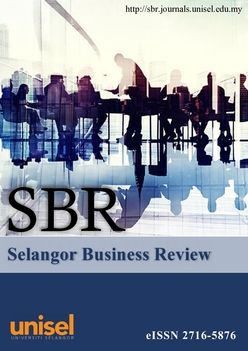Conceptualising intergenerational conflicts in managing talents in Selangor state owned companies
Abstract
From the perspective of human resource practitioners, the changing and evolving employee demographic composition has increased the diversity, complexity, and dynamic of the workforce that they have to manage. In Malaysia, due to socio-economic conditions and life requirement needs, more people continue joining the workforce later in life compared to the previous generations, in tandem with the Malaysian government which had increased the retirement age from 55 to 60 effective 2013 according to Section 4(1) of Minimum Retirement Age, Act 2012. A forecast by the Department of Statistics Malaysia (DOSM) reveals that Malaysia will be an ageing nation by 2030 when 15 percent of the population (5.8 million) are classified as senior citizens. The covid-19 pandemic also shed some share in influencing the demographic composition of the labour market in Malaysia. This implies that the intergenerational gaps will be wider in the workplace since organisations are hiring more of younger generations while retrenching more of aged groups in the middle of generational divides. Subsequently, the management of an organisation has to cater to the differences in needs without compromising the set target of performance either on quality, productivity, or profitability of the organisation. This paper aims to develop a conceptual framework on employees’ work style, work ethics, personality traits, information system capabilities, and other factors that contribute to intergenerational conflicts among employees of multi- generations in a company and how the management manages its talent and human resource to achieve a desirable outcome in the company’s performance. The findings can be utilised by specifically human resource practitioners to plan and establish policies that can create a working environment that meets the needs and suitability of talents of different generations.





 3,026
3,026 2,412
2,412 1,466
1,466